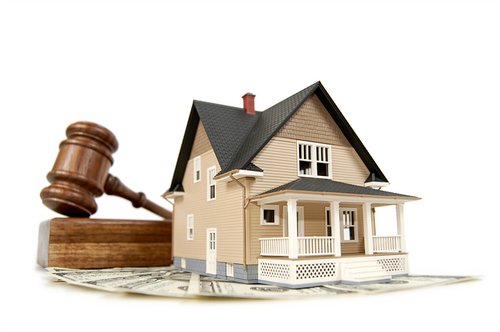Chapter 7 bankruptcy (and Chapter 13) discharges much of your responsibility to pay debts. It does not, however, remove liens attached to your personal or real property except in certain circumstances. When you finance a home or new car, you agree to guarantee the loan with collateral – the house or car you used the lender’s funds to buy. If you are unable to repay the loan, the lender can repossess and sell the property, then use the funds received from the sale to pay part of the outstanding loan balance.
How Can I Get a Lien Removed from My Property During Chapter 7?
This depends on the nature of the lien. You must keep paying a secured creditor on a car or mortgage in order to keep these items. It is possible, in some circumstances, to do away with a type of lien that can be placed against real estate upon the entry of a judgement in court against a landowner. This type of lien is called a judicial lien.
If your home has a mortgage, the mortgage lien remains attached to the property after your case gets discharged. If you are unable to pay the debt/mortgage, the lender can take possession of the home and sell it to pay the secured debt. However, if you did not reaffirm the debt in the bankruptcy, the lender will not be able to pursue you for any deficiency that arises after the sale of the house. Discuss your options with a bankruptcy attorney. They can advise you as to your options with secured debt in your bankruptcy case.
After My Chapter 7 Discharge, can a Creditor Put a Lien on My Property?
If a creditor does not have a valid lien of property prior to the filing of a bankruptcy, they cannot place a lien on the property after the filing/discharge of the debt in your case. If a discharged creditor attempts to sue you to try and place a judicial lien against property, you not only have a legal defense to their claim in court, but also a cause of action against the creditor for their illegal actions in their attempts to collect the debt. Contact an experienced attorney right away if a discharged creditor attempts to collect on their debt!
Can a Lien Be Put on My Property Without My Consent?
There a several ways under the law that creditors can place liens against property without consent. There are judicial liens, mechanic’s liens, and in some cases, especially in divorce or domestic relations cases, attorney liens relating to fees.
The IRS or a state Department of Revenue can also place lien(s) on your property, without your consent, to collect back taxes. With a loan, you must agree to have a lien placed on your property. Lenders like banks and car dealers cannot apply them without your agreement.
Does a Creditor’s Lien Go Away If I Have No Collateral to Sell?
If you attempt to sell or transfer your interest in property that is subject to a lien without satisfying the underlying debt, you are asking for legal trouble. If you attempt this with items that have a title or deed, the transfer will create a cloud or defect on the chain of title that will cause the transferee issues. This, in turn, will cause legal issues for you. If you do not wish to keep property subject to lien through your bankruptcy case, an experienced bankruptcy lawyer can advise you on how to surrender the item to the creditor and deal with the underlaying debt through bankruptcy.
Sawin & Shea – Indianapolis Bankruptcy Attorneys
If you have a lien against your property and no way to repay the loan, filing for Chapter 7 bankruptcy may be the smartest option to get out from under the debt. Are you considering just letting a creditor foreclose instead? There are tax implications with this course of action. Let the Indiana bankruptcy attorneys at Sawin & Shea explain why Chapter 7 or Chapter 13 is a better solution. We are experienced in bankruptcy procedures. Please do not hesitate to call us today at 317-759-1483 or send an email for a free consultation. We are ready to help.



